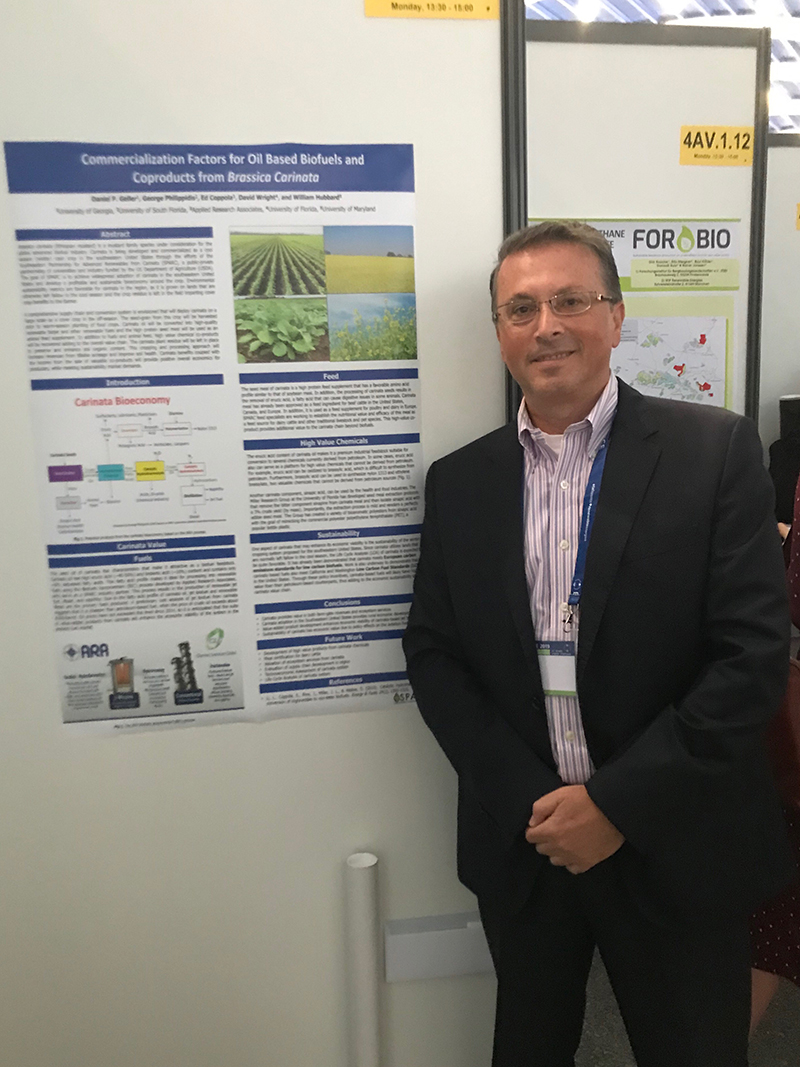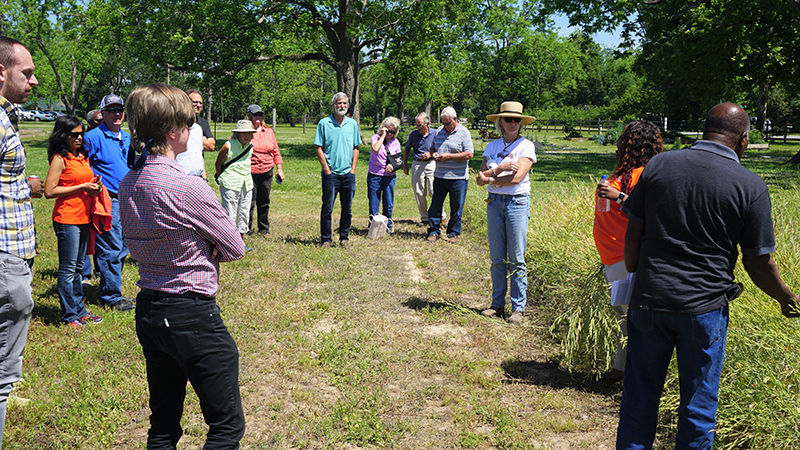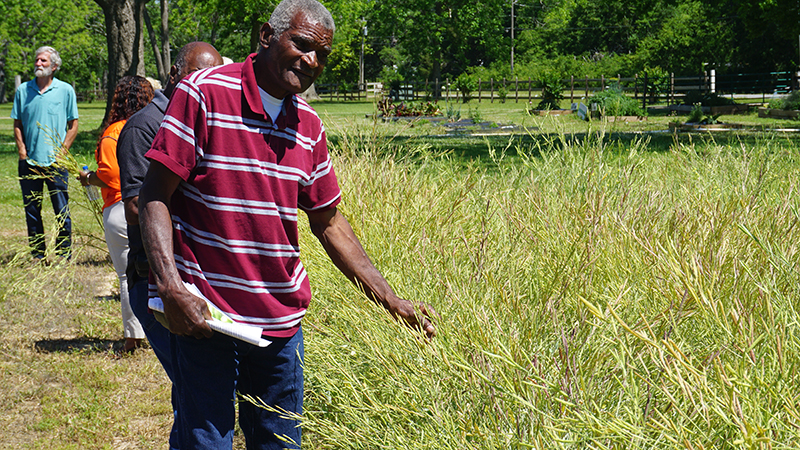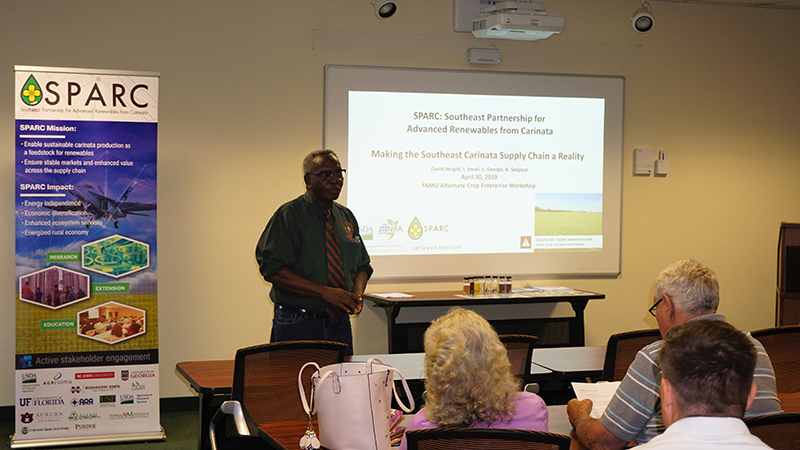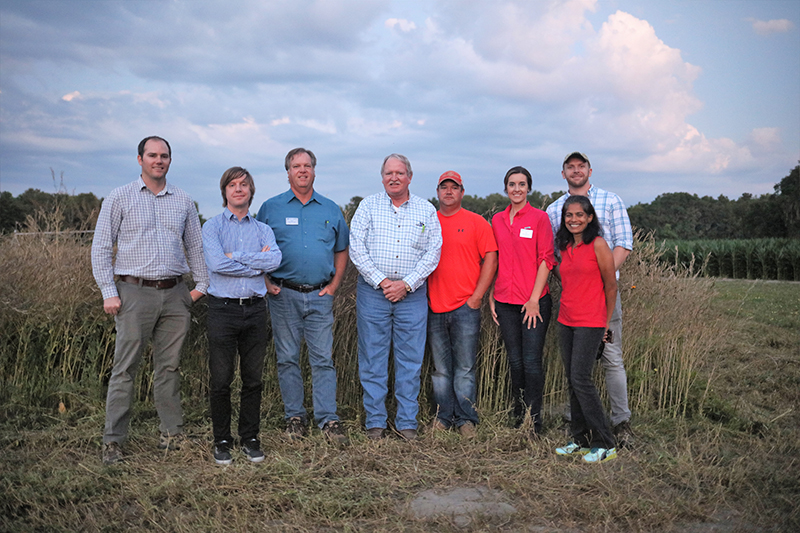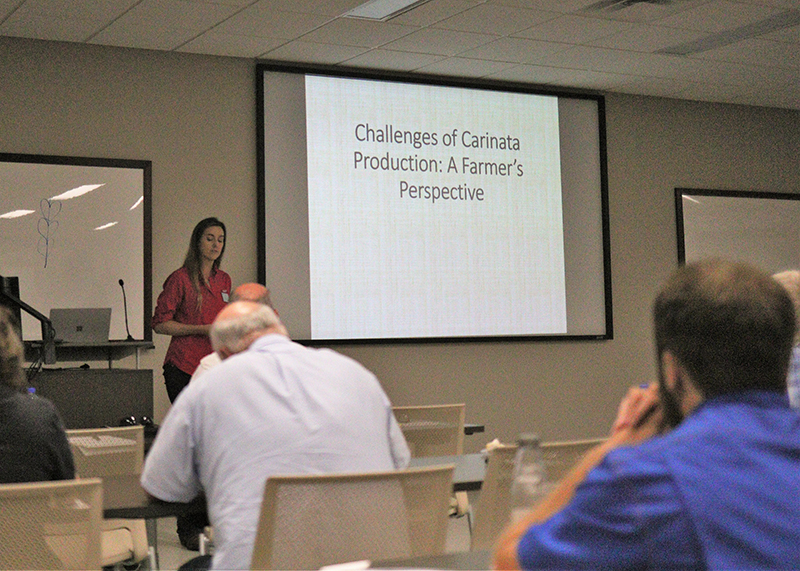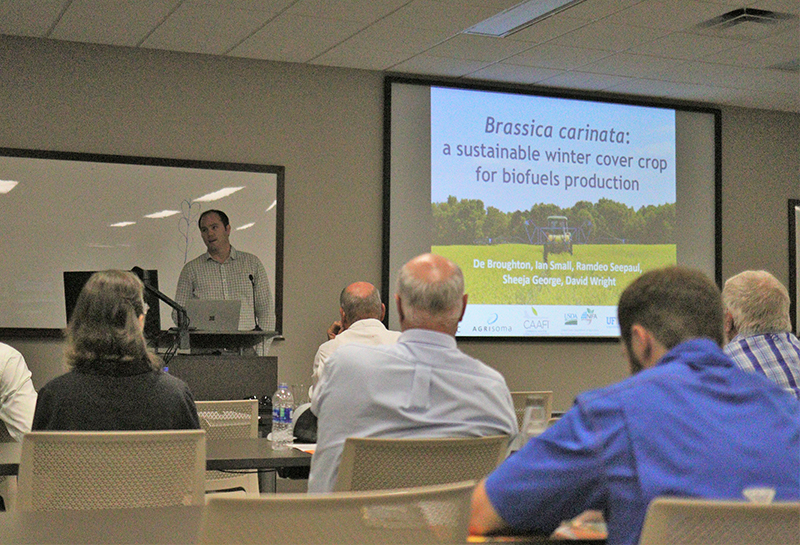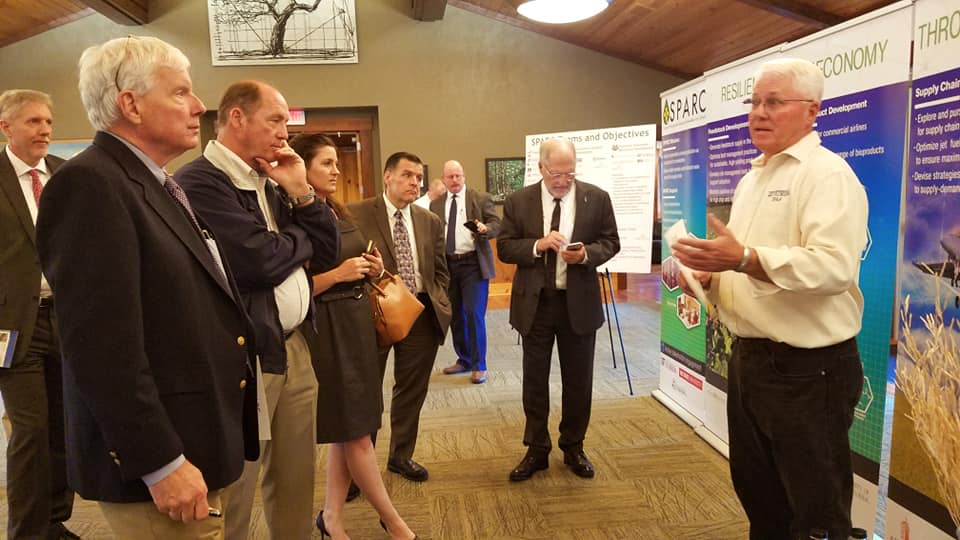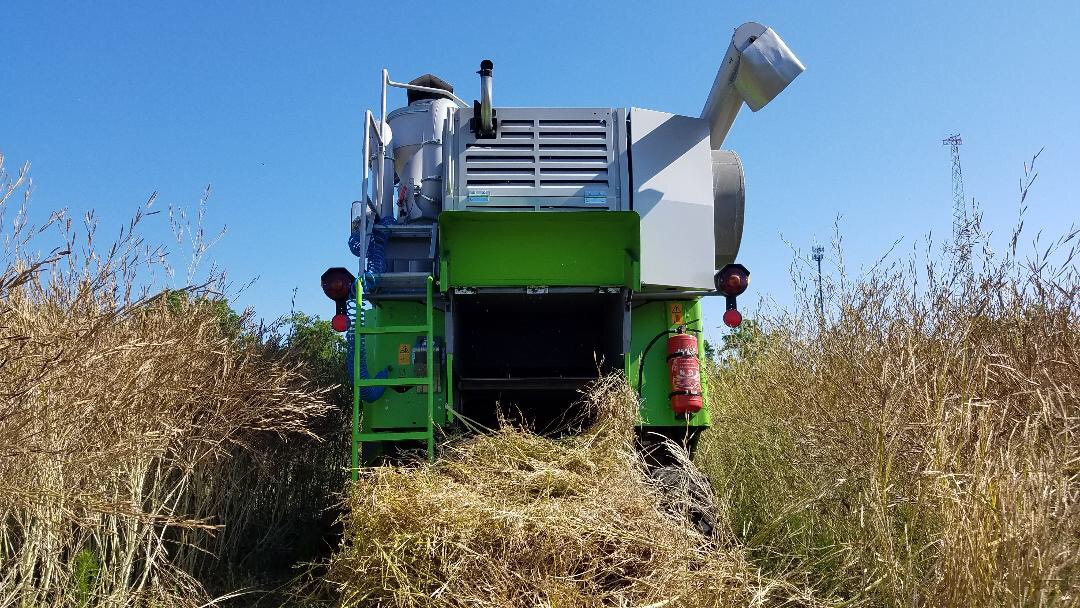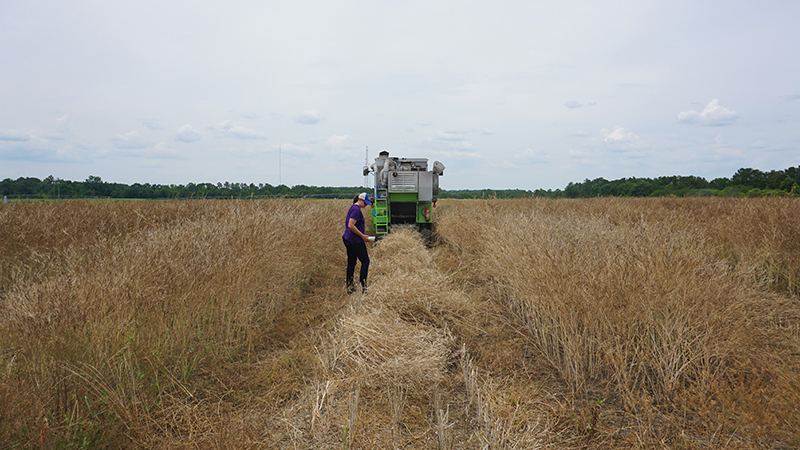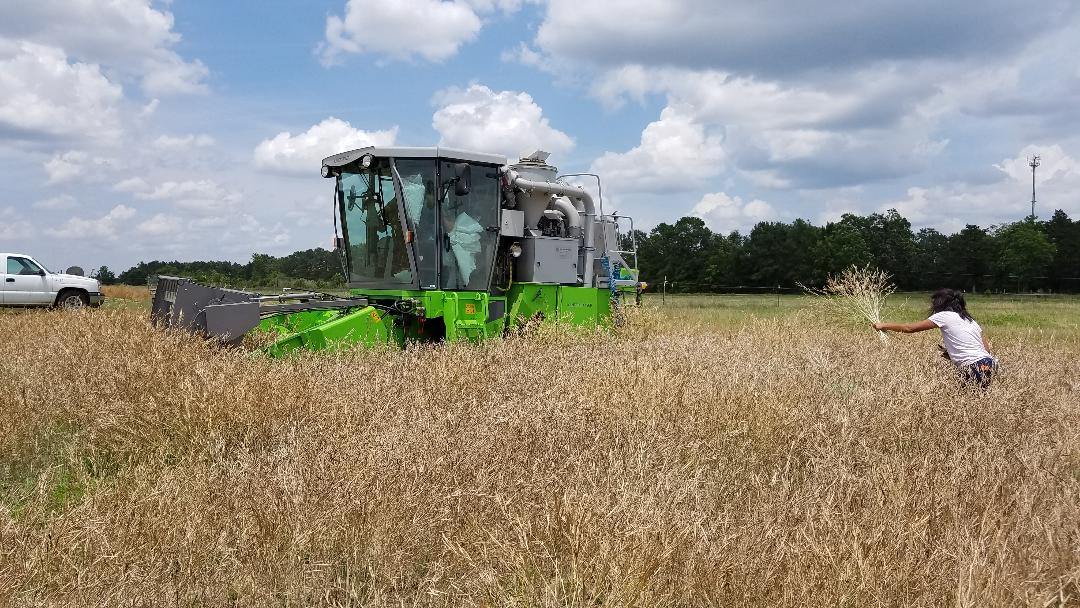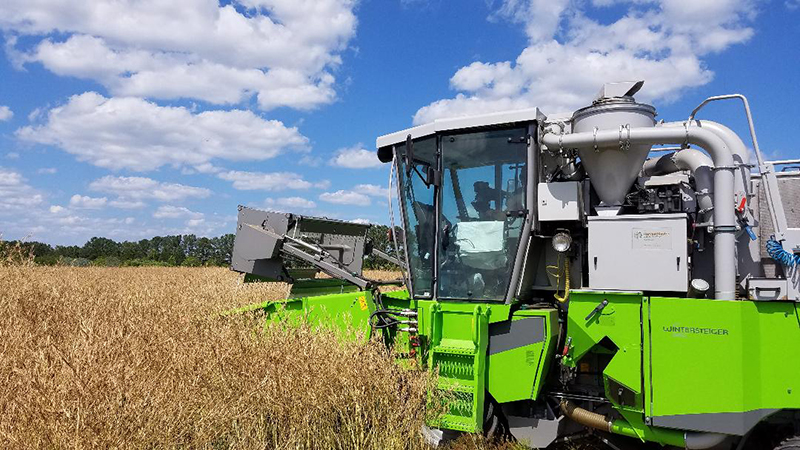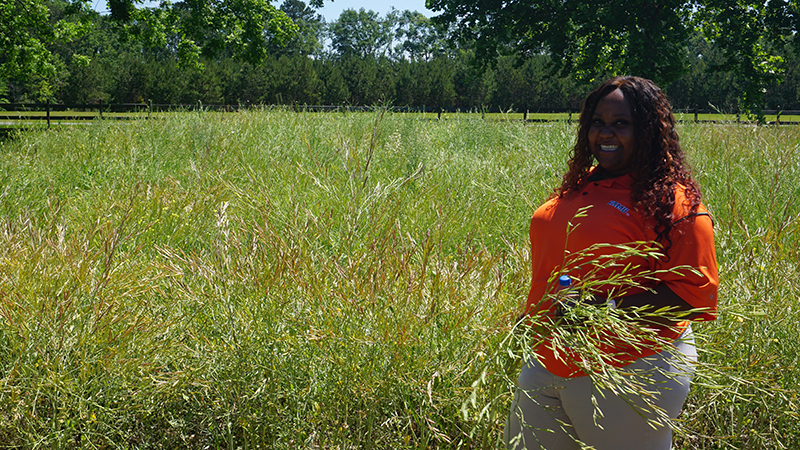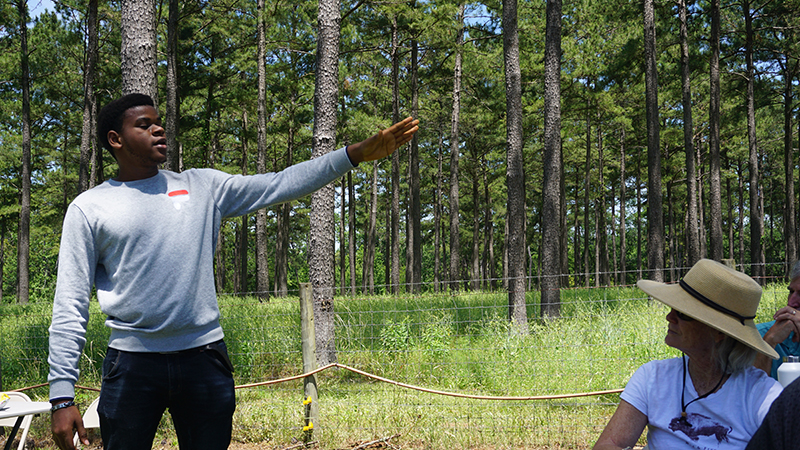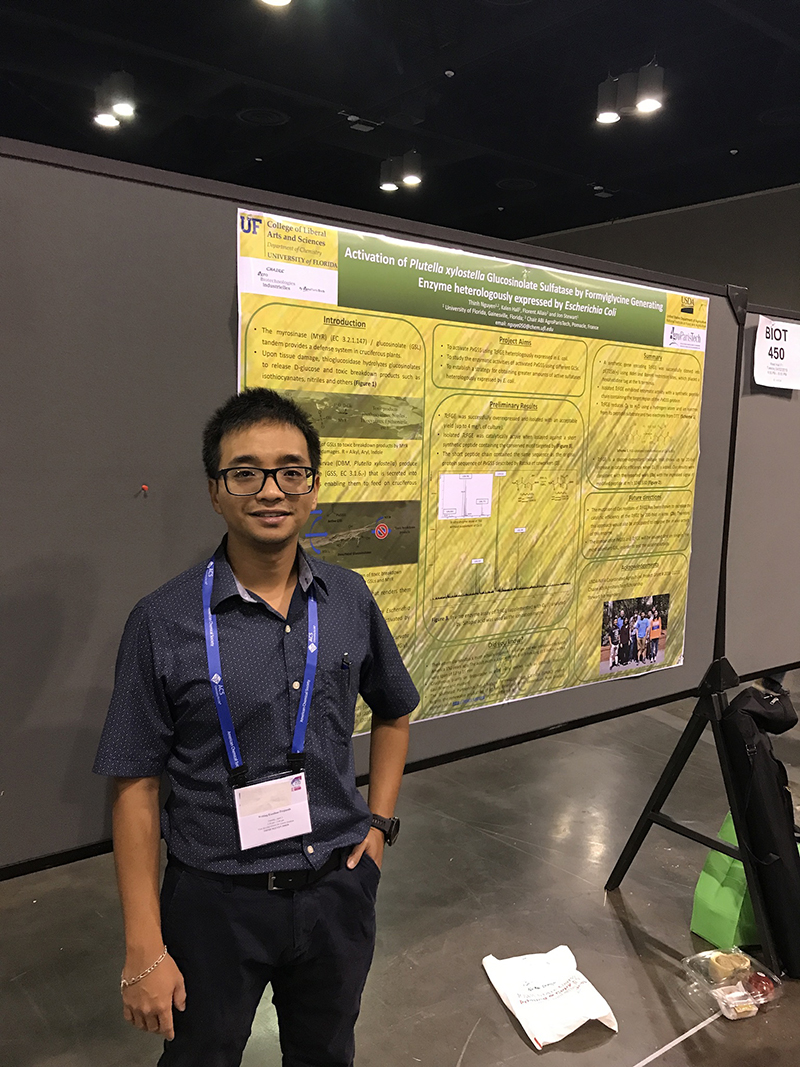
Message from the Executive Committee
It’s a wrap on carinata harvest for the 2018-19 season. We have success stories, lessons learnt, and still more mysteries
to unravel in order to realize the maximum potential of this crop. The performance of Agrisoma’s advanced carinata lines in several research locations across the Southeast is an indicator of the promising pipeline that is waiting to be taken to
new heights.
Meanwhile, the SPARC and carinata story continued to get an audience at various meetings and workshops. One such event was the SAF workshop organized by the University of Tennessee, Institute of Agriculture. The focus of this workshop was to discuss and devise strategies specific for the Southeast US, for sustainable aviation fuel industry development. Carinata along with other feedstock are right in the middle of that conversation.
We have not taken our eyes off of sustainable feedstock development, and we have certainly not undermined the need to bring maximum value for all the stakeholders along the value chain. We are starting year 3 of SPARC, driven by these two equally significant tenets of feedstock and supply chain development. Our outstanding research, extension and education teams continue to optimize the system for a winning solution for all!
SPARC Stories
The What, Why, and How of the SPARC Supply Chain Team
The Southeast Partnership for Advanced Renewables from Carinata (SPARC) has both an opportunity and an obligation to add value by focusing equally on all the pieces in the project title to maximize our collective mutual benefit. The supply chain team uniquely seeks to create maximum commercial value to all stakeholders in the project from engaged farmers through fuel and chemical end users and all parties in between. It seeks to ensure that all participants meet at a minimum their investment thresholds in our collective pursuit. A supply chain is no better than its weakest link. The chain must meet investment hurdles of each of its links or it will not work.
The supply chain mission statement put together and approved by the team was adopted shortly after team inception in August 2017 and reads as follows: “Develop and implement processes to ensure that all stakeholders from growers through end users (including processors, distributors, service providers, environmental interests) can receive needed sustainable value from the outcome of SPARC enabled commercialization opportunities; motivate and implement communications among and between stakeholders”.
“Why” supply chain development is important” is best stated by the perspective of state economic development stakeholders from the core states of Alabama, Florida and Georgia who have engaged with the team and supporting our efforts. Dialogue indicates that there is as much as a 5X factor on top of farm jobs by developing a local/regional supply chain. SPARC is well positioned to do just that as its members represent the vast majority of those stakeholders in either team or advisory roles.
“How” of the SPARC Supply chain team begins by simply putting the prime “imaginers” of SPARC in the same room with a jointly owned mission and follow up on ideas that can be parlayed into individual opportunities for our participating private entities (ARA, CAAFI, Agrisoma), together with the state and regional representatives. Two other critical pieces needed to add value are also now part of the team and contributing to the supply chain development dynamic in ways that were not envisioned at the outset of the project. Specifically:
• Distribution optimization via the DOT Volpe Research Center created Fuel and Freight Optimization Tool (FTOT) to evaluate the economics and environmental performance of distribution systems as well as examining resiliency (e.g. response to changing external conditions. SPARC partner University of South Florida has emerged as a national leader in implementing FTOT “bottoms up analysis” as a supply chain analysis tool by virtue of SPARC engagement
• Potential benefits from carinata as a winter crop for nitrogen and phosphorus remediation. This is being accomplished through SPARC’s System Metrics team at UGA using the Soil and Water Assessment Tool (SWAT) modeling in combination with infiltration measurements. Excess nutrients taken up by crops could potentially translate to avoided cleanup cost associated with the detrimental effects of water quality issues (red tide, blue green algae) if the crop is not present.
• Equally important is to have the “eyes and ears” of SPARC, represented on the team by our regional extension. UGA, Auburn and UF extension are the recognized face of SPARC in their states and they can each contribute to achieving state economic development goals when working with core supply chain objectives.
Accomplishments to date of the SPARC supply chain and its members include:
• External tasks contributed by both the DOT Volpe Transportation Center executed in partnership with USF. Beta tests of bottoms up analysis completed last year. Eight individual scenarios designed by ARA and Agrisoma being processed now.
• A grant provided by the Alabama Department of Economics and Community Affairs (ADECA) to Auburn for distribution analysis is underway
• Ongoing discussions with GA Rural Economic development and Florida Department of Agriculture and Consumer Services
(FDACS) to expand upon these current efforts to optimize supply chain value in those states
• Increased emphasis on obtaining infiltration data on nitrogen and SWAT analysis for phosphorus to add to both the database and success template for landscape design
• Initiation of resiliency analysis
In closing the supply chain team would like to thank the SPARC leadership for its insight and flexibility to create what is a unique and important new capability for our stakeholders and a promising template for future projects to follow. We are always open to new ideas on how to enhance this unique means of implementing supply chain development and welcome your thoughts and inclusion among the ranks of Supply Chain “imagineers”
SPARC Member Spotlight
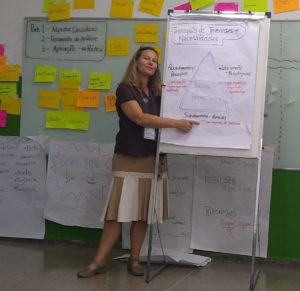
Wendy-Lin Bartels is stakeholder engagement and communications expert at the University of Florida, in the School of Forest Resources and Conservation. She has a BS in Botany from Stellenbosch University, South Africa. She later diversified into science communication and stakeholder engagement at the University of Florida, earning her master’s degree in Mass Communication and a PhD in Interdisciplinary Ecology. She is an active team member of the Florida Natural Resources Leadership Institute (NRLI) where she helps train natural resource professionals in the concepts, tools, and techniques required to manage conflict and reach consensus over contentious natural resource issues. Dr. Bartels has commendable international experience through her work in S. Africa, S. Asia and Latin America and continues to maintain some of these work relationships. She spends most summers in the Amazon with NGOs that support sustainable family farming and rural development.
Wendy-Lin loves connecting the dots, be it people, processes, or institutions, and that enthusiasm makes her a central figure in SPARC where she aims to engage with this multi-disciplinary public-private partnership to facilitate interaction across disciplines for meaningful collaboration. She brings fresh perspective to the project through her tremendous experience in stakeholder engagement, team science, experiential learning, and communication. She leads her team in SPARC to actively and systematically collaborate with other project team members to get a 360 degree view of the project, then provide insights into project improvement, and ultimately, provide pointers for project success.
Wendy-Lin was born and raised on a farm in South Africa during the apartheid. These early experiences shaped her life path and career trajectory both of which seem to follow the theme of building relationships through community engagement. Whether she is facilitating discussions among multi-disciplinary, multi-agency teams on climate, sustainability, and rural development, or hosting a gathering of friends, for Wendy-Lin, people and connections are always center-stage. Her life philosophy of unifying people and ideas from local to national to global scales is played out at her work-place as she focuses on rural development, bridging the rural-urban divide, and examines the participatory methods and institutional environments that help bridge the society-academia disconnect.
She currently lives in Micanopy, FL with her husband who owns and runs a small organic produce operation. She enjoys the outdoors which often involves long walks with her canine companions, river paddling, long, lazy hours at the beach, among other activities. She enjoys live music and local food, of course, in the company of friends.
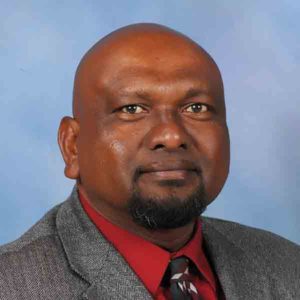
Bisoondat Macoon is Associate Research Professor at the Central Mississippi Research & Education Center, Mississippi State University (MSU). His research focuses on grassland ecology, management, ruminant nutrition and environmental issues associated with cattle production and utilization of animal wastes in pasture systems. He constantly explores new lines of research with alternative crops such as cool-season perennial grasses, legumes, and so on, for pasture systems. Optimizing cropping systems to maximize soil health and ecosystem service benefits are central to his research program. During his career so far he has advised/mentored several masters and doctoral students, led and co-led several competitive grants, and authored several peer-reviewed publications. Dr. Macoon continues to remain affiliated with several of his professional societies and displays exemplary citizenship through providing administrative and technical services to these organizations.
In SPARC, Dr. Macoon continues his investigation of alternative crops by conducting genotype screening of advanced carinata lines with the goal of identifying lines suitable for Mississippi. He also co-leads an investigation on environmental parameters for optimum carinata growth and development under controlled conditions to eventually develop growth models for carinata.
Dr. Macoon was born and raised in Guyana. His grandfather was a subsistence farmer in Guyana, and having been around farms and farm operations during his most impressionable years, Dr. Macoon developed a passion for agriculture. He has a BS in Agriculture from the University of Guyana and an MS and PhD in Agronomy from the University of Florida. His passion for agricultural research, teaching and outreach is evident from the years he spent teaching science and engaging in agricultural research prior to starting his career at MSU. He taught high school agriculture science, then rose up the ranks from research assistant, to research scientist, to acting unit head at the National Agricultural Research Institute (NARI) in Guyana. He was Fellow of the UN FAO which eventually landed him a fellowship to pursue graduate school.
In his career so far he has been engaged in several national and international development related activities such as consulting on the Inter-American Development Bank-Ministry of Agriculture of Guyana sustainable agriculture development project to develop a pasture research project in Guyana, providing reviewer services to journals based out of Brazil, China, Canada and EU nations, being part of a volunteer mission to Nicaragua to visit pasture-based livestock farms to provide recommendations for improved pasture management, mentoring international students, and so on.
Dr. Macoon loves to travel, but his love for travel probably does not supersede his love for pee-wee soccer for which he holds the distinction of being the only non-parent (since his kids graduated to more advanced leagues) volunteer still coaching the pee-wee league in his area. He also volunteers his time to coach the TOPSoccer program, a program for mentally and physically disabled children and young adults. His community engagement keeps him involved in multiple initiatives one of which is the MS chapter of the “Partners of the Americas” of which he is member and Past President. This initiative was initially inspired by President John F. Kennedy calling for a people-to people initiative, to build cultural awareness, respect and camaraderie, while creating and implementing projects that improve quality of life.
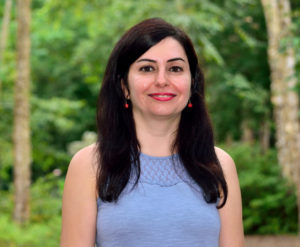
Nahal Hoghooghi is a postdoctoral research associate at the University of Georgia (UGA) in the College of Engineering. Her main role is watershed modeling in Dr. Brian Bledsoe’s program at UGA. Nahal earned her master’s degree in Soil Physics from the Science and Research University in Tehran, Iran, and a bachelor’s degree in Soil Science from Bu-Ali Sina University in Hamedan, Iran. Her passion for environmental sciences brought her to UGA to pursue her doctoral degree. Her Ph.D. research focused on the effects of onsite wastewater treatment systems on streamflow and nitrogen load in urban and suburban watersheds of metropolitan Atlanta, GA. As a graduate research assistant, she gained expertise in both field work and watershed modeling using the Soil and Water Assessment Tool (SWAT). Nahal had a stint with the US Environmental Protection Agency (US EPA), Office of Research and Development (ORD) in Cincinnati, OH as an Oak Ridge Institute of Science and Education (ORISE) postdoctoral fellow. During her postdoctoral experience at the US EPA, she assessed the effect of Green Infrastructure (GI) practices on hydrology and water quality in one of the suburban watersheds at the East Fork Little Miami River using the Visualizing Ecosystem Land Management Assessment (VELMA) model. Her current research interests include understanding the influence of nonpoint source pollution and land management changes on stream water quantity and quality at the watershed scale.
In SPARC, as part of the system metrics team, Nahal brings her expertise in watershed modeling to assess the effects of carinata on watershed hydrology, nutrients, and sediment loads in the Southeast US under plausible future scenarios of land use to support evaluation of its co-benefits, life cycle costs, and economic viability. She works collaboratively with the feedstock development team in order to obtain field data to optimize the model. Nahal has successfully worked across workstreams and project teams to carve out a relevant project within SPARC that will address important questions on the effects of carinata as a new winter addition to the SE US, at the watershed scale.
Nahal enjoys planting herbs and vegetables on her small porch. In her spare time, she hikes and explores nature with her husband.
SPARC Student Spotlight

Thinh Nguyen is a doctoral student at the University of Florida with Drs. Jon Stewart and Florent Allais at the University of Florida and AgroParisTech, respectively, as part of a dual PhD program. His research is on recovering value added proteins and secondary metabolites from carinata defatted meal. He has also completed some breakthrough work by engineering a formylglycine generating enzyme that activates a sulfatase and deactivates myrosinase. This deactivation prevents glucosinolates in carinata (and other species) from being metabolized into harmful antinutrients, potentially rendering carinata meal based products safe for human and animal consumption.
Thinh’s interest in biocatalysts stemmed from his passion to develop environment friendly products and processes. Enhancing value of carinata by developing value added coproducts from it is a major focus area of SPARC, and Thinh’s work and interests perfectly align with that goal. Prior to starting his PhD, Thinh obtained a master’s degree from the University of Reims-Champagne in Ardenne, France, in the area of natural substances and medicines. He has a bachelor’s degree in Physics and Chemistry also from the same University.
Thinh has had several diverse internship experiences prior to starting his PhD. Some of these include a stint at the Institut of Chemical Process Fundamental at the Czech Academy of Sciences in Prague, Laboratory of Methodology in Organic Synthesis and Laboratory of Coordination Chemistry, Institut of Molecular Chemistry at Reims, France. He plans to return to France to finish the second part of his research in his doctoral program.
Thinh has taken his research outside his lab through talks and posters at several national meetings. He has been an enthusiastic participant in the student competitions organized by SPARC. During his talks at the SPARC competitions, he has been able to successfully articulate the relevance of his work and put it in perspective for a diverse audience.
Thinh is an ardent traveler and loves to listen to music. Whether training for one of his triathlon races which happens to be his hobby, or designing and executing his experiments, Thinh maintains consistency and discipline in his routine to accomplish his goals.
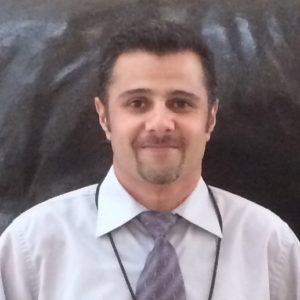
Ahmet Yener Manisali is a doctoral candidate in the Department of Chemical and Biomedical Engineering at the University of South Florida (USF) under the guidance of Dr. George Philippidis and Dr. Aydin K. Sunol. He holds a double BS in Metallurgical & Materials Engineering and Chemical Engineering from the Middle East Technical University, Ankara, Turkey, and an MS in Chemical Engineering from the Florida Institute of Technology (FIT). Ahmet’s doctoral research mainly involves cultivation of microalgae in photobioreactors for production of biofuels and bioproducts from the lipid fraction of biomass.
His research focuses on the production and isolation of algal phospholipids that can be potentially utilized in the formulation of green cosmetics as liposome formers, emulsifiers, solubilizers, and wetting agents to replace those currently derived from non-sustainable food sources. In his work he employs semi-preparative HPLC and Phosphorus-31 (31P) NMR spectroscopy to purify and characterize specific phospholipids. In general, Ahmet’s interests are in the area of process modeling and engineering, advanced material characterization through HPLC, GC-MS, NMR and other techniques, pharmaceuticals and nutraceuticals, among other things.
Within SPARC, Ahmet mentors senior chemical engineering students pursuing capstone projects on aspects of carinata conversion to renewable jet fuel and bioproducts, such as nylon 1313. The projects involve analysis of the technical, economic, and environmental aspects of carinata processing using the process simulator ASPEN Plus. Ahmet’s role in SPARC is particularly significant to the workforce development aspect of SPARC where the objective is to train a workforce equipped for the renewable fuel and bioproduct space.
Ahmet also had considerable industry R&D experience, primarily in the auto and cosmetics industry, prior to starting his doctoral degree. He is able to provide real-world and hands-on training to the students he advises by bringing his industry perspective into academic settings.
Ahmet is originally from the small agricultural town of Tavsanli, situated in the western region of Turkey. Besides teaching and reading, he likes to play and watch soccer and ping pong (table tennis). He enjoys swimming, catching a movie with friends now and then, or simply hanging out with them in his spare time.

Nahal Hoghooghi is a postdoctoral research associate at the University of Georgia (UGA) in the College of Engineering. Her main role is watershed modeling in Dr. Brian Bledsoe’s program at UGA. Nahal earned her master’s degree in Soil Physics from the Science and Research University in Tehran, Iran, and a bachelor’s degree in Soil Science from Bu-Ali Sina University in Hamedan, Iran. Her passion for environmental sciences brought her to UGA to pursue her doctoral degree. Her Ph.D. research focused on the effects of onsite wastewater treatment systems on streamflow and nitrogen load in urban and suburban watersheds of metropolitan Atlanta, GA. As a graduate research assistant, she gained expertise in both field work and watershed modeling using the Soil and Water Assessment Tool (SWAT). Nahal had a stint with the US Environmental Protection Agency (US EPA), Office of Research and Development (ORD) in Cincinnati, OH as an Oak Ridge Institute of Science and Education (ORISE) postdoctoral fellow. During her postdoctoral experience at the US EPA, she assessed the effect of Green Infrastructure (GI) practices on hydrology and water quality in one of the suburban watersheds at the East Fork Little Miami River using the Visualizing Ecosystem Land Management Assessment (VELMA) model. Her current research interests include understanding the influence of nonpoint source pollution and land management changes on stream water quantity and quality at the watershed scale.
In SPARC, as part of the system metrics team, Nahal brings her expertise in watershed modeling to assess the effects of carinata on watershed hydrology, nutrients, and sediment loads in the Southeast US under plausible future scenarios of land use to support evaluation of its co-benefits, life cycle costs, and economic viability. She works collaboratively with the feedstock development team in order to obtain field data to optimize the model. Nahal has successfully worked across workstreams and project teams to carve out a relevant project within SPARC that will address important questions on the effects of carinata as a new winter addition to the SE US, at the watershed scale.
Nahal enjoys planting herbs and vegetables on her small porch. In her spare time, she hikes and explores nature with her husband.


